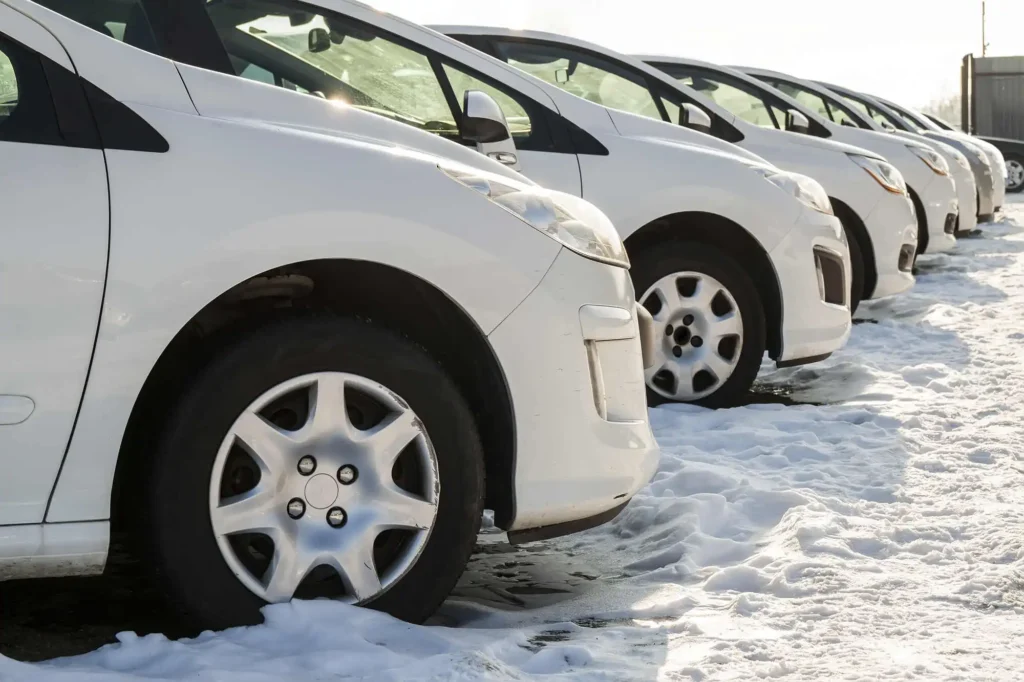Winter is around the corner, and as you tackle the withered leaves in your garden, you might have already experienced the sight of the first layer of frost on the pavement or on your car’s windscreen and bonnet. Most motorists agree that driving during the winter is a complicated affair. The icy roads, freezing temperatures, salted streets, and foggy weather call for your car to be in excellent driving conditions so that you keep accidental hazards at bay. Therefore, it pays to be prepared.
While you gear up to usher in the chill, here are a few winter car tips to keep your car smooth and rolling during the coming season.
Battery
Your car battery can become more painful to operate in cold weather than during the summer months. You could consider conducting a volt test on your battery before the onset of winter to ensure that it will remain in good working condition. If the results are not great, you might want to look into buying a new car battery so that you no longer have to worry about being stranded in the middle of the road on a cold winter evening just because your car won’t start.
Car tyres
One of the most important winter car tips is to secure your vehicle with winter tyres during the cold season. Winter tyres can help provide traction when there is snow on the roads and remain more flexible at lower temperatures.
Tyres tend to drop their pressure in the cold, and driving with low-pressure tyres could mean more wear and tear and, consequently, more hazards. Be on the constant lookout and ensure you fill your tyres at a petrol station air pump when you think they have deflated.
Antifreeze
Antifreeze is extremely important to your car as it prevents your engine from freezing during the winter season. One of the most effective winter car tips is to keep your antifreeze topped up and ensure there are no leaks in your vehicle’s engine that could spill the antifreeze. If you bought your car recently, then you can rest assured, as most new cars can last up to 150,000 miles or five years.
Many experienced mechanics thus suggest that instead of only antifreeze, you fill the engine with a 50-50 antifreeze-water ratio.
Car Lights
Lighting is one of the biggest problems of winter driving, especially when you are driving back home at the end of the day. We suggest winter car tips to ensure that all your car lights are illuminated appropriately. When you begin driving at the start of the day, ensure that you clean your headlights off the snow. Fix all the lights and ensure that the fog lights of your car are functioning appropriately. One of the excellent winter car tips is to clean the headlamps with car wax, allow it to dry and buff it off.
Windscreen wipers and wiper fluid
Winter season calls for foggy days and nights, which make visibility low and driving extremely dangerous. The windscreen wipers should be changed every year, and make sure that you do this just before the winters approach. Also, one of the major winter car tips is to keep a tab on the wiper fluid so that you can easily wipe frost and snow off your windscreen.
Survival Kit
In order to maximise your vehicle’s winter readiness, we give you essential winter car tips, such as keeping a survival kit in your car to get you through any sudden hazards caused in the middle of the road. Ensure that your survival kit contains a flashlight, jumper cables, a first aid kit, a blanket, and a mobile phone charger that works with your vehicle’s cigarette lighter. If you happen to reside in extremely cold climates, you need to keep a shovel and a deicer spray so that you can open the engine and the bonnet in case they are shut in the cold.
Petrol Tank
During the winter months, it is imperative to always keep your car’s fuel tank full. If you are suddenly stranded in the middle of the road, the least you can do is keep yourself warm by switching on the engine and turning on the heater.
Now that you know how to care for your car during the winter months, here are a few handy winter car tips:
- Get your car serviced before the start of the winter months.
- If your vehicle is a rear-wheel drive, you can put a couple of sandbags behind the rear axle to add weight, which will increase the rear wheel’s traction.
- Understand your car and learn how it is equipped to function in the snow. Check if your vehicle is equipped with anti-lock brakes, stability, and action control. You also need to know if you have rear, front, full-time, or part-time four-wheel drive. Also, ensure that the defroster of your car’s rear window works.
- Drive your car cautiously and slowly on snow. Accelerate and brake gently and take turns with ease. Anticipate stops and turns appropriately and avoid tailgating altogether.
- If you have much driving experience in snow, it is advisable that you get some practice in parking lots before taking on the steering wheels.
- Keep your car clean at all times. Polish the dashboard, clear out litter, clean the windows, and wipe the door sills clean. Do not allow grime and wintry muck to build up.
- If you are considering purchasing a new car, an all-wheel drive can be a good option, although a front-wheel drive will give you better fuel economy.
If the above winter car tips have already tempted you to keep your vehicle at home, remember that an unused car can have worse effects. Take it out at least once a week, which will ensure that you are not left with seized brakes and a flat battery during an emergency.
